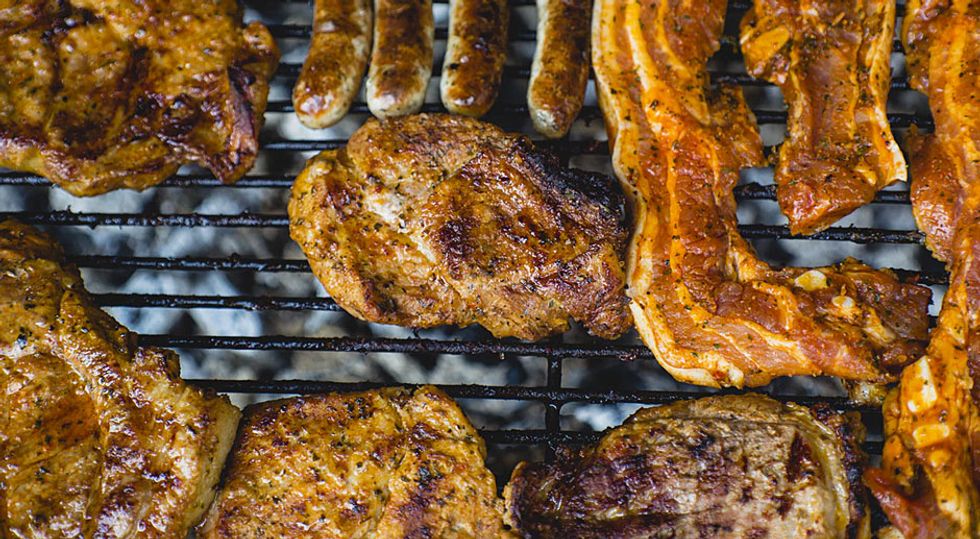The Keto Diet: An effective diet solution or a Health Risk? The ketogenic diet has been proven to have some impressive benefits besides weight loss, including the control of blood sugar for diabetics and even reducing the chances of having a seizure.
However, like any diet trend or fad, the pros seem to be highlighted far more than the cons, and there are some potential risks you should take into consideration before jumping into this lifestyle change. Here is everything you need to know about the benefits and downfalls of the keto diet and how to determine whether it's right for you.
First, A Brief History of Keto
When a friend of mine told me they only eat "keto foods," I thought they meant "Quito," as in the capital of Ecuador! Well, since then I've heard a lot about the diet as it's gone from obscure to wildly popular.
In fact, the keto diet is arguably now the most widely known low-carb, high fat diet. It usually includes eating mostly meat and other protein-rich foods, while drastically cutting carbohydrates. (Typically to under 50 grams of carbs per day) As a result, your body eventually starts to break down and use fat as a source of energy rather than carbs. When this happens, your body is in a state called ketosis.
There is a lot of evidence to support that the keto diet can help prevent seizures in children. In fact, it keto was commonly used as a treatment for epilepsy until effective anti-seizure drugs were developed.
Researchers speculate that the keto diet doesn't only protect against seizures, but other disorders as well, including Alzheimer's, although there is not yet sufficient evidence to prove it. Weight loss, on the other hand, is something that most researchers agree the keto diet can help with.
Keto & Weight Loss, Type 2 Diabetes
When your body reaches the state of ketosis, it is easier for you to shed fat and build muscle, which helps you get that lean, toned appearance. Patients with type 2 diabetes can also benefit greatly from the keto diet, not only because of the potential weight loss, but because it helps keep their blood sugar at a safe level. These are some pretty exciting benefits and they've both been well-researched and extensively proven.
However, there are significant risks associated with the keto diet.
Keto Risks / Side Effects?
Now that you know why so many people are raving about the keto diet, you may be wondering: what are the potential risks? First off, it is a fairly extreme low-carb diet and when followed closely, even healthy carbs are omitted from the menu.
For example, strawberries, apples, and pineapples are a few fruits that are off limits because they are high in natural sugars. Limiting the amount of fruits and vegetables you eat to this extent could cause you to become constipated, especially when you increase the amount of meat you're consuming.
The keto diet can be dangerous if you forget to stay hydrated because keto causes you to lose water more rapidly. If you're not consuming enough fluids while on the diet, you could put yourself at a higher risk for kidney stones.
Your weight loss could also be a little deceiving in the beginning stages of the diet. You might think the sudden weight loss you experience immediately after starting the diet is fat, when in reality you're really just losing water weight. This can be even worse for women who are breastfeeding and trying to lose baby weight postpartum.
Keto Flu Risk?
Switching from burning carbs to fat isn't always a smooth transition. You might also experience the "keto flu", a set of symptoms that are renowned for being side effects of the keto diet, including nausea, headaches, irritability, and fatigue.
These flu-like symptoms are caused as your body struggles to adapt to your new, low-carb diet. In a way, the ketosis process is a bit like trying to quit an addictive substance like caffeine or nicotine. (Yikes!)
Is Keto Weight Loss Sustainable?
Needless to say, the diet's strict nature makes it difficult to stick to and it is not very sustainable for the long term, and most experts rate it poorly. It takes a lot of work to follow properly and in a way, that is healthy. Most people eat far too much meat and not enough vegetables with little variety of healthy food groups, which isn't exactly a balanced diet.
Although processed meats are usually the most convenient and affordable, it is advisable to avoid eating too much of these unhealthy protein sources. People on the keto diet may have to set aside extra time and money to buy quality meat and make healthy, home-cooked meals.
So, is it sustainable? Here's the rub. You'll probably lose weight with keto, but most experts will tell you that it's not good to stay on indefinitely. That's why commercial diets like Jenny Craig, Nutrisystem, and South Beach Diet (Phase I) start out with a restrictive fast weight loss phase for the first 30 days, but then incorporate healthy carbs and fiber, as eating meat to lose weight isn't a long-term solution!
The Keto Diet: So, Is It Healthy Weight Loss?
While the keto diet can produce life-changing results, especially for those with certain disorders or ailments, it should be used with caution.
It is not a foolproof solution for weight loss, and it takes a lot of effort and commitment, so talk to your doctor before starting the keto diet.
No matter what diet you're currently on, you should always consume healthy, balanced meals full of a variety of vegetables, fruits, whole grains, (good carbs) and lean meats.



















